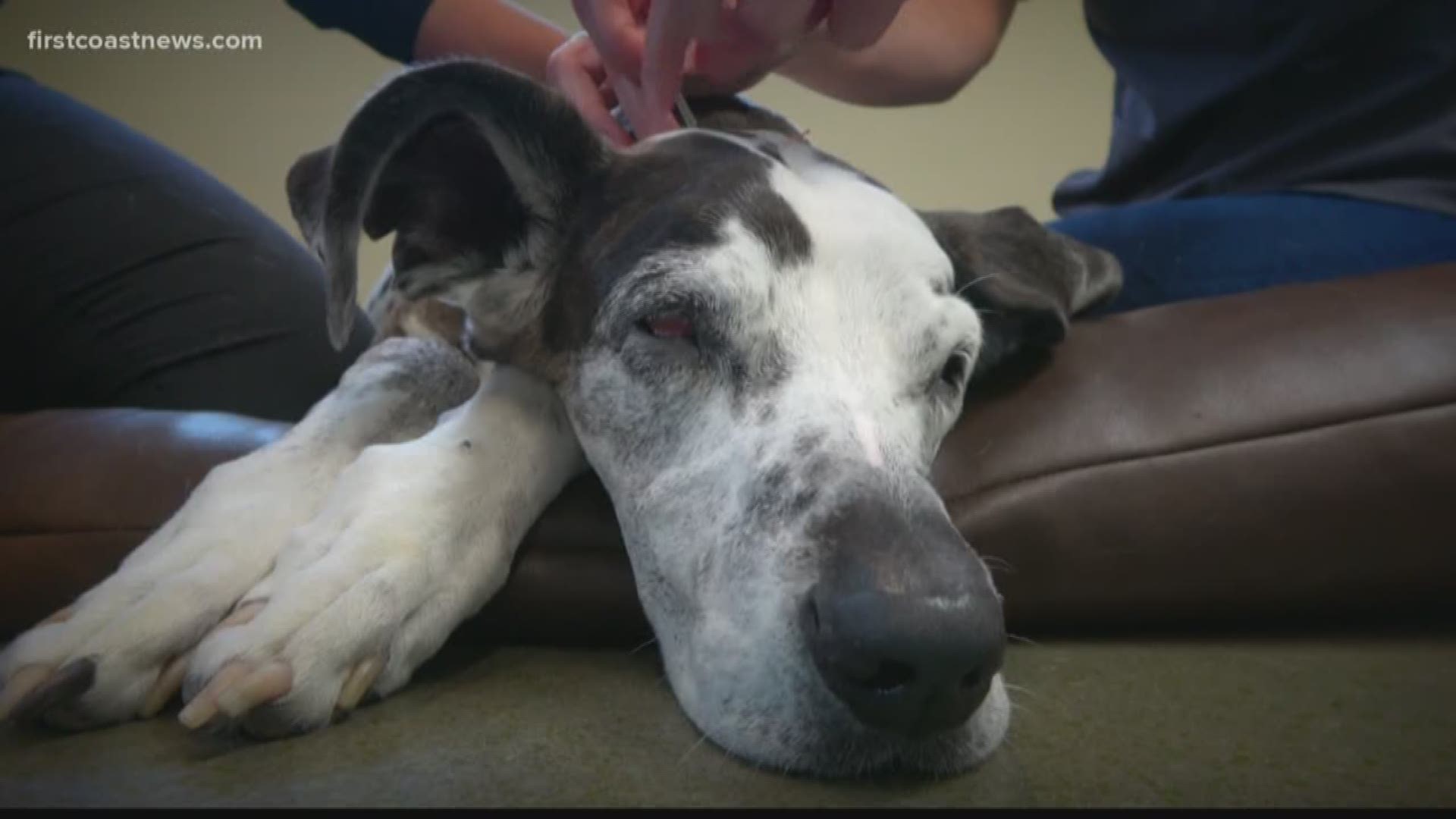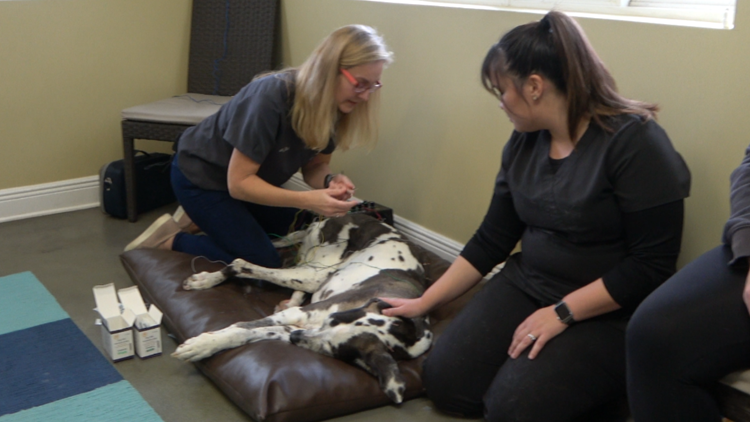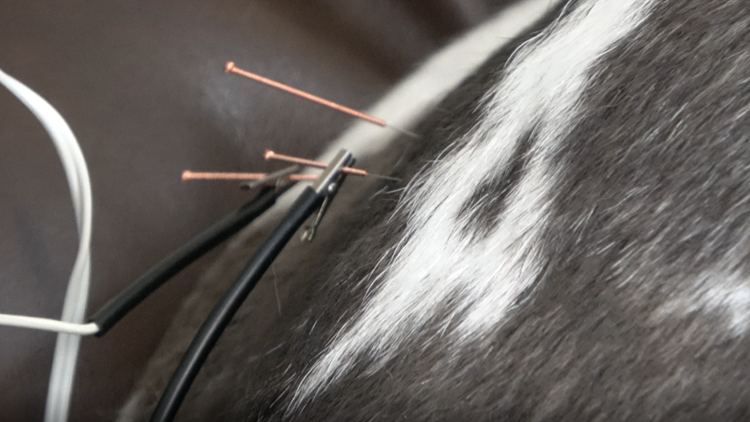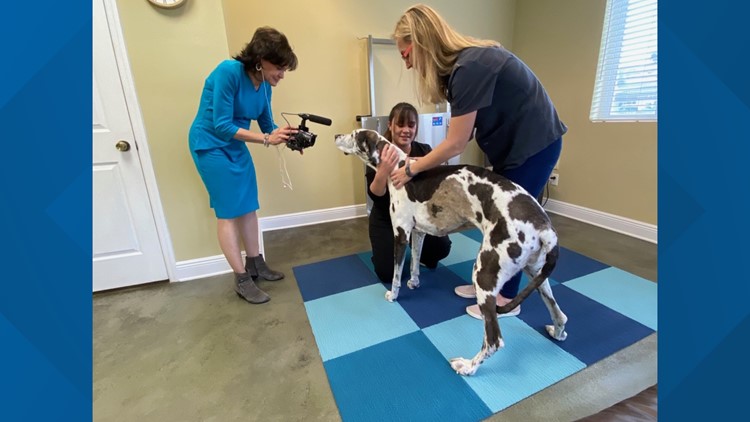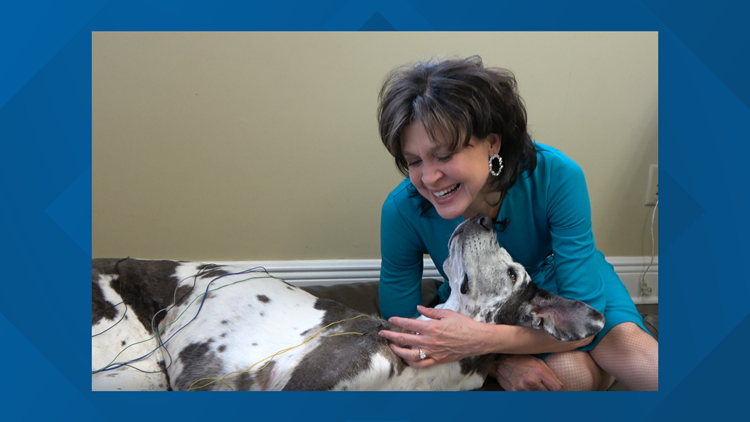JACKSONVILLE, Fla. — My first reaction was, "Really? I've never heard of acupuncture for dogs." Then I dug into some research.
Let's start with Millie, a dog big enough to look like a pony. Millie is a Great Dane, almost 11 years old, getting up there in years, especially for her breed. Her owner/mom is Leah Kosiek.
Eventually, Millie couldn't eat without choking and her vet said there was no cure.
"I was terrified," Kosiek said. "I didn't sleep for days. Is she breathing? Is she okay?"
The family moved downstairs to sleep on the couch and monitor Millie.

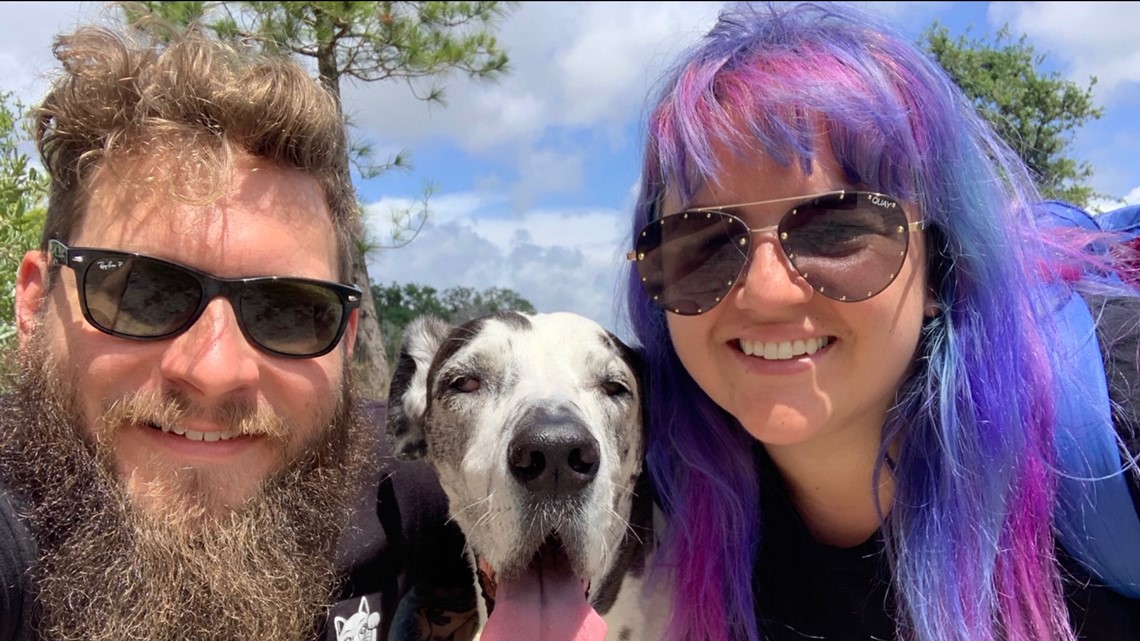
Kosiek says somebody suggested she try acupuncture for Millie. She was surprised.
"Do they do acupuncture on dogs?" she wondered.
Turns out acupuncture was the answer for Millie. Kosiek says she eats now without choking and her incontinence problem is mostly over.
"She's not dribbling anymore," she said.
Millie was treated at the vet practice of Dr. Jenna Hauck at Jacksonville Beach.
PHOTOS: Millie the dog is helped by acupuncture
I spoke with Dr. Hauck and Dr. Tiffany Mosley, both certified veterinary acupuncturists in the Jacksonville area. Both are graduates of the University of Florida's College of Veterinarian Medicine and the Chi Institute, an international center for acupuncture training.
"We have seen patients come in as paraplegics and now they can walk," said Dr. Mosely at the Mandarin Animal Hospital.
Dr. Hauck says she's seen some "amazing results" in her practice, as well.
She says acupuncture for animals goes back to ancient times in China.
"They have evidence in 2000 BC," she said. "It was used to help the emperor's horses stay ready for battle."
How does it work? It's complex, but for the layman, it involves 14 invisible meridians, which are sort of like highways in the body to control the balance of organs and systems. Along those meridians are some 400 points.
Dr. Hauck puts an acupuncture needle into Millie and explains, "This is a special point on the meridian for the bladder."
It's called bladder 39 for incontinence. The sterile needles increase blood flow and immune response to help stimulate the body to heal itself.
But how does she know exactly where to put those needles in all that fur?
Dr. Hauck explains, "I know where the points are, but I feel for them, too," Dr. Hauk explained, saying it comes from years of experience. "Sometimes a little tingle or heat or a depression or swelling."
Dr. Mosley says acupuncture is safe, but, of course, it's not like magic for every condition.
She says one of her patients, a dog named Oz, has two artificial hips from the UF vet school and a host of orthopedic problems. But she sees the acupuncture helping Oz. One point near the knee, where she puts a needle, is for "pain and discomfort," she explained. One point on the head is for a calming effect.
Dr. Mosley says the treatment for Oz can last from five to 30 minutes. The sessions don't need to be lengthy to be effective, she says.

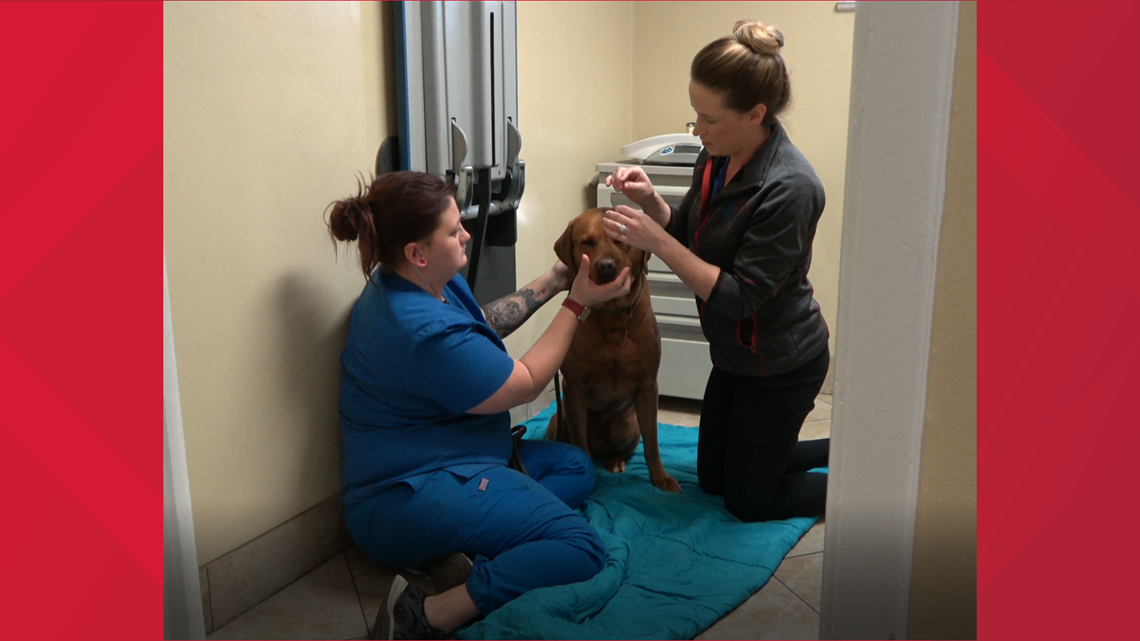
"They do acupuncture in China on babies and those babies have acupuncture needles in for a matter of seconds," Dr. Mosley said.
But needles? You might worry they would hurt your dog, which was my question, as well. I wanted to see it with my own eyes. I watched the session with Millie, and she actually snored during the treatment. I couldn't detect any distress, which, the vets say, is typical for most patients.
But does acupuncture work for dogs? It's also performed on cats, horses and other animals.
I checked with Dr. Justin Shmalberg, a faculty member of the UF's College of Veterinarian Medicine. He said, "Of course, on the whole, studies are mixed with some showing improvement and others showing no effect."
According to the website of the American Kennel Club, acupuncture can help. An AKC veterinarian cites one study of 65 dogs with arthritis. For all of them, pain medicine quit working. But with acupuncture, 70 percent got more improved comfort and mobility.

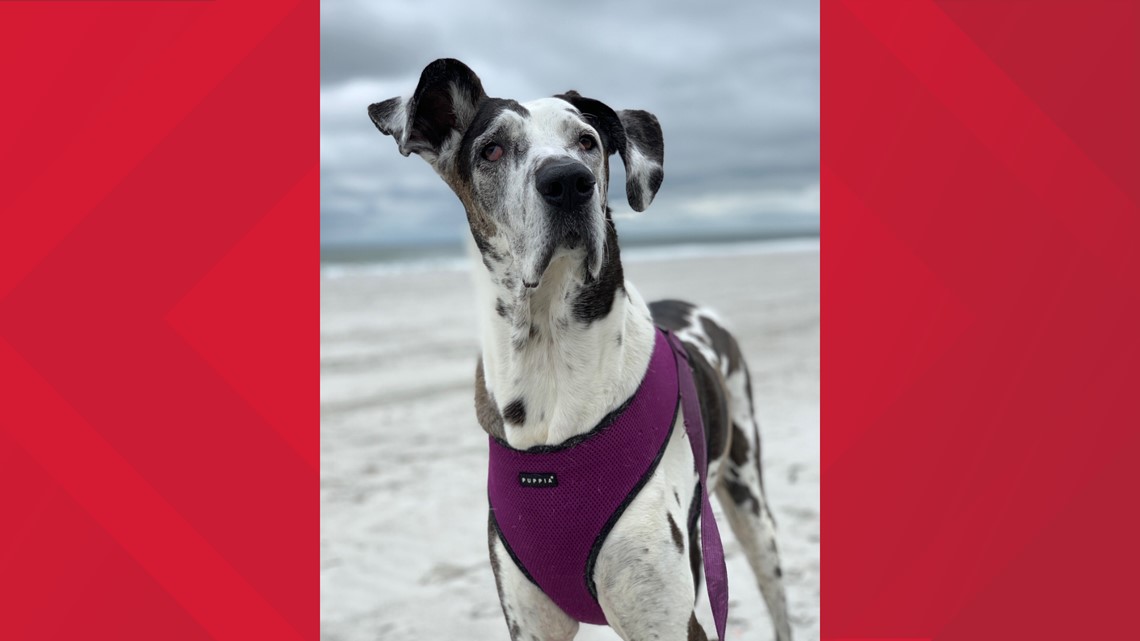
No doubt Millie's mom is happy she tried acupuncture, even though she says her "friends were shocked."
Both veterinarians want to make a few key points:
1) They see value in both traditional medicines and acupuncture. It's not one or the other. An integrative approach can be the best idea.
2) While traditional medicine may be better at diagnosing medical issues, acupuncture can be effective at solving the core problem inside the body.
3) Make sure you go to a certified veterinary acupuncturist. You can locate them in your area with the following websites:
If you'd like to delve into more research and explanation about acupuncture in the veterinary world, here are two places recommended by Dr. Hauck:

